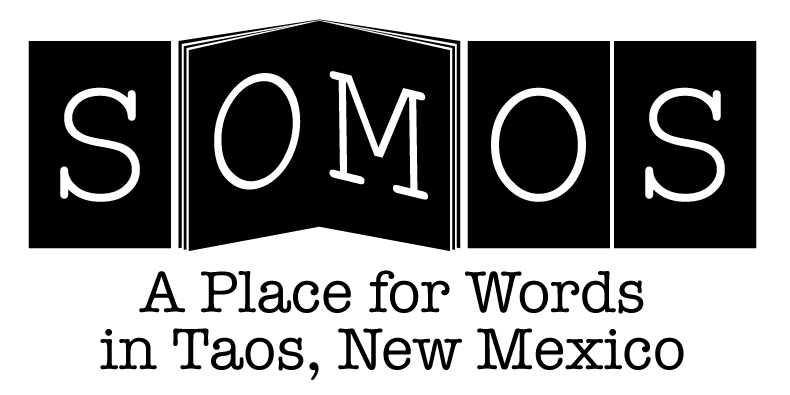the 10th annual
Taos Writers Conference
Sponsored by SOMOS, Taos, NM
Early Bird Registration by end of day 6/1/26.
* Website will be updated by March 1, 2026 with registration information and new faculty & workshops
All workshops (except for the ones designated online via Zoom) are located at SOMOS, 108 Civic Plaza Dr, Taos, NM 87571, unless otherwise specified.
2026 Schedule (Will be updated 3/1/2026)
All live events are at SOMOS, 108 Civic Plaza Dr., Taos, NM
Registration closes 7/22/26
Key to workshops: P=Poetry; M=Memoir; PR=Prose-fiction/nonfiction; PU=Publishing; PL=Playwriting
FRIDAY - July 24, 2026
SATURDAY - July 25, 2026
SUNDAY - July 26, 2026
INTENSIVES ($175 Early Bird/ $199 Late Registration)
Choose one from the following six, all-day Intensive classes.
Weekend Workshops AND Friday Intensive: $499/$569
Day 1
FRIDAY
July 24, 2026
10:00 – 4:00
Coming Soon
Alexandra Fuller, Keynote Speaker & Instructor
Keynote 2026 time and location TBA
WORKSHOPS ($335 Early Bird/ $385 Late Registration)
Choose one workshop from each time slot for Day 2 and Day 3.
Weekend Workshops AND Friday Intensives: $499/$569
Day 2
SATURDAY
July 25, 2026
9:00 – 12:00
Coming Soon
Day 2
SATURDAY
July 25, 2026
12:45- 1:30
ROUNDTABLES
The Taos Writers Conference offers lunchtime Roundtables on Saturday, Day 2 only.
These value-added lunch events are informative and free to attend. Bring your brown-bag lunch to the group discussions with local experts on topics of interest in the literary world.
Saturday 12-2 Author Book sales
Day 2
SATURDAY
July 25, 2026
2:00 – 5:00pm
Coming Soon
Faculty Readings Book signings/sales (live)
5:30pm – 7pm
Day 3
SUNDAY
July 26, 2026
9:00am – 12:00pm
Early Bird Registration ends 6/1/26. All registration closes on 7/22/26.
PLEASE NOTE OUR CANCELLATION POLICY: 100% refund minus a $35 administrative fee for cancellations dated 6/1/26 or earlier; 50% refund minus a $35 administrative fee for cancellations received between 6/2/26 – 7/17/26. No refunds given for cancellations received after 7/17/26.
As of June 1st participants may sign up for one (only) weekend workshop for $85 which includes the keynote reading, all receptions, book sales, and faculty readings.
Open Tues-Sat 12pm-4pm 575.758.0081 108 Civic Plaza Drive
Mailing Address: P.O. Box 3225, Taos, NM 87571
THANK YOU TO OUR FUNDERS
SOMOS programs are made possible in part by these organizations: New Mexico Arts, a Division of the Department of Cultural Affairs, and by the National Endowment for the Arts • Taos Community Foundation • The McCune Foundation • The National Endowment For The Arts • The Virginia Wellington Cabot Foundation • Taos County Lodgers Tax • TaosNetLLC for high speed internet service • Lions Club • Milagro Rotary Club • New Mexico Humanities Council • Nusenda Foundation • Witter Bynner Foundation • Amazon Literary Partnership • Literary Emergency Fund
